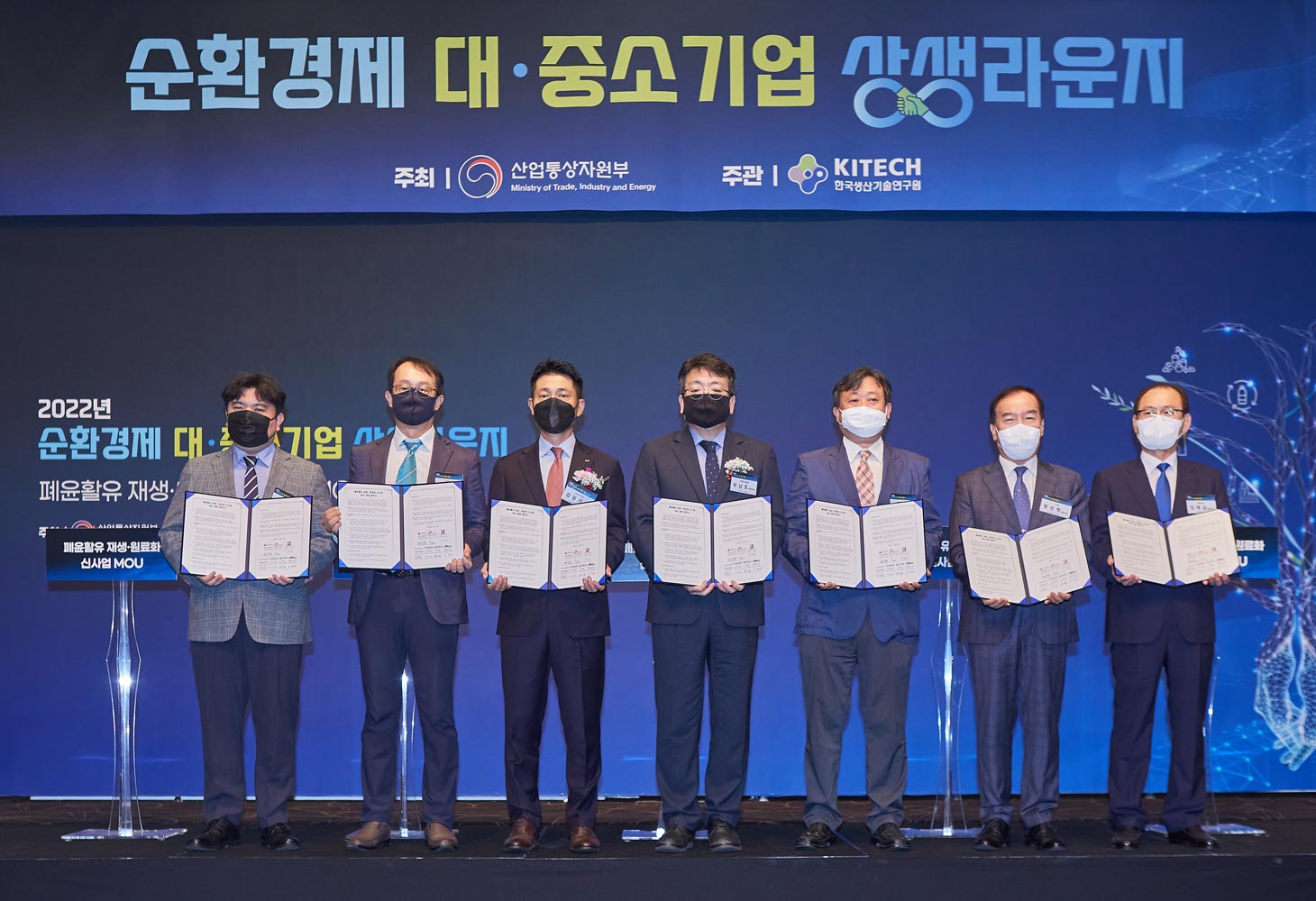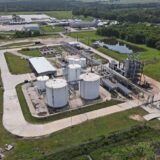
SK Lubricants creates circular economy by recycling used oil
SK Lubricants and South Korea’s Ministry of Trade, Industry and Energy have signed a multilateral business agreement to collect and recycle used oil and sell re-refined base oils as a low-carbon product.
The lubricant business of South Korea’s SK Innovation announced that it plans to create a circular economy by collaborating with small- and medium-sized enterprises (SMEs).
“SK Lubricants will start the ‘lubricating oil upcycling’ business to build a circular economy, which is one of the company’s financial stories. We will do our best to establish this MOU as a representative circular economy model in Korea based on public-private cooperation through refining technology support,” said Kim Won-ki, vice president, SK Lubricants.
SK Lubricants and the Ministry of Trade, Industry and Energy held a signing ceremony on July 6 related to the ‘new business for recycling waste lubricants and raw materials’ in Seoul. The event was attended by Kim, Choi Nam-ho, director of industrial policy at the Ministry of Trade, Industry and Energy, and Kim Taek-hoon, president of Clean Korea.
Companies participating in the memorandum of understanding (MOU) include Clean Korea, Deokeun Interline, Daelim, and Sebang Refining Oil who will collect the used oil. Currently the spent lubricants are used as low-cost fuel oil to power thermal plants and boilers. These companies have also agreed to re-refine the used oil. SK Lubricants will sell and supply the “low-carbon” base oil. The company said that re-refining used oil can significantly reduce carbon and air pollutants compared to burning them as fuel.
The ministry will support SK Lubricants’ efforts through a regulatory sandbox, a system that exempts or suspends existing regulations for a certain period of time.













